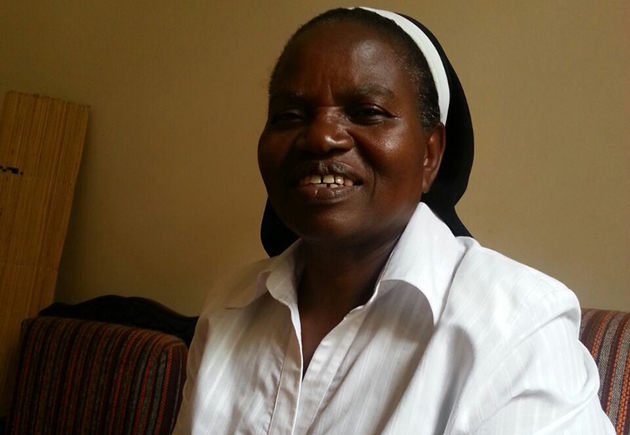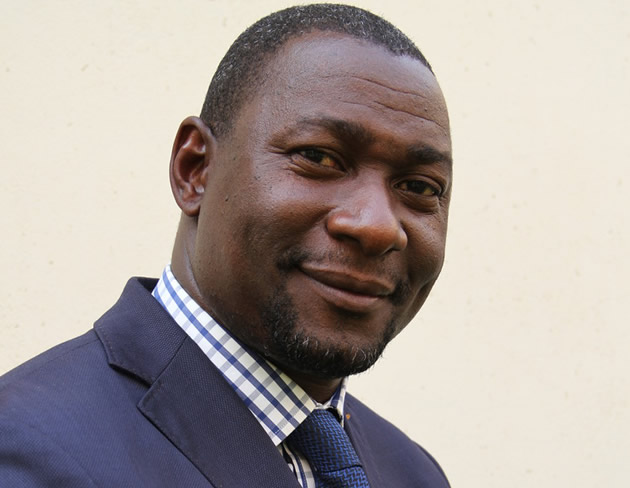Farewell Sister Tariro. . . champion of Deaf Education in Zim


Sister Tariro Chimanyiwa, who has worked at Emerald Hill School for the deaf for 35 years, was asked by fellow Sisters to relocate to the UK
Ignatius Mabasa Shelling the Nuts
Where is the good in goodbye? Two weeks ago, the deaf community in Harare bade farewell to one of its champions, Sister Tariro Chimanyiwa OP, who had worked at Emerald Hill School (EHS) for the deaf for a remarkable 35 years.
Her farewell was emotional and reminiscent of that time when Paul bade farewell to the elders at Ephesus.
There was much weeping and embracing after Paul had said, “In all things . . . we must help the weak and remember the words of the Lord Jesus, how he himself said, ‘It is more blessed to give than to receive.’”
Sister Tariro gave her life to the deaf to the extent that the deaf considered her to be deaf as well. She confirmed that God gives special people to his special people.
Sister Tariro was asked by her congregation of the Dominican Missionary Sisters of the Sacred Heart of Jesus to join their leadership team in the UK.
Fighting back tears, Sister Tariro shared how sad it was to leave Emerald Hill School for the Deaf after 35 years.
“My leaving was not a choice I made personally. It was unexpected. I was elected to leadership. It was the Lord’s doing, perhaps the lord was saying to me, ‘You have done your part, I want you to move on.’
“I am sad to go, I will miss the children, but I am also saying it’s time to let go and let others make an impression too.”
So who is this Roman Catholic Sister called Tariro who chose to give her life to working with disabled people, when disability is expensive — financially, emotionally, and relationally?
What influenced her to become a friend, advocate, mother and grandmother of the deaf?
Sister Tariro was born on October 5, 1949 in Mhondoro at St Michael’s Mission.
She went to school in Chivero.
She fondly says, “I was kind of brought up as a Catholic. My mother used to go to a church that was some 10 kilometres away from our home, and she went with us.
“I did my primary education at a Methodist school and upper primary at an Anglican school.
“Then I went to Makumbe Secondary School in Domboshava, where I did Form 1 and 2. It was at Makumbe that I had my first encounter with the Dominican Sisters.”
She narrates that the Dominican Sisters who were teaching her impressed her. “These were German sisters and they cared for us as if we were family.
“That touched me deeply and I said these people care so much for people who are not related to them, what makes them do that? I became interested in their way of life.”
According to Sister Tariro, Makumbe Mission is where the Catholic Church trained the local sisters, presently known as the LCBL congregation.
Her encounter with the German Sisters made her resolve that she also wanted to work and serve her people.
“But I didn’t want to finish school and right away go and become a sister. I told myself that I should work and get a little bit of money to buy my mother something to thank her.
“So that is when I came to EHS in 1969 and worked for a year. In January 1970, I went to train as a teacher at Bondolfi Teachers’ Training College in Masvingo.
“After graduating at Bondolfi, I went to teach at Loreto Mission, where I taught hearing children, a Grade Three class. Then, I went to train as a sister, that is, novitiate training for two years from 1975 to 1976.
“Then in 1977, I went back to Loreto Mission and joined the School for the Deaf.” Sister Tariro says it was then that she fell in love with deaf children.
“I started with four-year-olds, learning how to communicate with them.
“For me, it was extraordinary because I could see the transformation and impact. I saw children who didn’t have any language or communication skills, children who were regarded as difficult and who were not understood changing for the better.
“And when I met their parents just after one term, some remarked, ‘My child is now so different — he’s communicating.’
“Somehow this gave me some joy that I was doing something that was beneficial to the children, their parents and communities.”
Asked what the highlight of her life is, she humbly said, “My life as a sister is a life of self-giving. The highlight for me is that I have been allowed to work with children, parents and teachers for a long time. Being able to make a difference to people’s lives.
“The sisters have been good and supportive, Emerald Hill School for the Deaf is a place where you live from hand to mouth — and the sisters have fund-raised and given support from Germany such that I felt carried in my work — it wasn’t my work actually, but our work.
“Being given the vote of confidence and being allowed to continue to work in this capacity has been a privilege. Of course people say, ‘How will the school survive without Tariro?’ but it wasn’t me alone, I was working with others.
“I think EHS will survive and carry on because it is the Lord’s work.”
Although she must be thinking of retirement, it was challenging to hear her say, “I wish I could be younger and work more.” Sister Tariro has not only influenced the deaf within the school, but she has been part of the deaf community in society — being invited for weddings, funerals and other social events involving the deaf.
She says, “When you enter the world of deaf people, you become part of their life — whether they are in school or out of school. EHS is a centre for the deaf; it is the place where deaf people come to when they have problems.
“Also parents would phone or come when a former student died to inform me and ask me to join them. The deaf have a deep connection with the school and the teachers because they are the people who first understood them.
“So my being involved in their social affairs was just a part of my life. They are part of my family.”
Sister Tariro’s last words were profound, “Parents love your children.
“Once they know that you love them, they will know they are loved and they will excel. The way we show love is by doing the simple things we do for your hearing children.
“That was the tool I used to win the deaf children. To the teachers, do your best to care for the deaf child.
“The introduction we have made to have hearing children at the school may overshadow the deaf children and we might lose sight of why this school was established.
“Hearing children were allowed at EHS in order to help the deaf child.
“Keep in mind that this is a ‘School for the Deaf.’ Keep fighting for the rights of the deaf child.
“We haven’t done much; we are still very far from the ideal situation as a country.
“Sign language is good, but it is not the answer, we have to teach deaf children to understand the written form so that they become free to take a book, read and understand it.
“If we depend on sign language, it is not written and when they go out in society, and do not meet someone who uses sign language, how will they survive?
“If our deaf children remain illiterate, we are to blame because we will not have done enough to assist them.
“If we teach them sign language only, we will be limiting them to the deaf community only, and we would not have done our work.”
Emerald Hill School for the Deaf offers Pre, Primary and Secondary education, including vocational and technical subjects.
It is the only establishment for the deaf of this magnitude run by the Dominican Sisters of the Catholic Church in Zimbabwe and in Southern Africa. The Dominican Sisters founded the school in 1947 at Loreto Mission in Silobela, Kwekwe, and later relocated to Emerald Hill in 1979 due to the liberation struggle that had seen many schools closing.
Over the years, the school has produced quality self-reliant graduates.
The Dominican Sisters of the Sacred Heart of Jesus came to Zimbabwe in 1891 and from Zimbabwe they spread to Zambia, Kenya, England, Germany and Colombia.









Comments